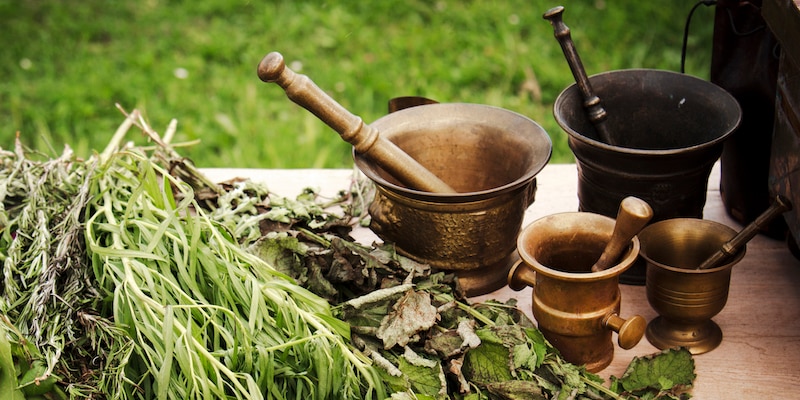by Melissa Chichester
Thanks to modern-day technology, it’s possible to retrieve the most beneficial constituents in certain plants. In supplements, these are referred to as extracts.
In their whole forms, many herbs are bursting with phytonutrients that have beneficial effects and uses for health and wellness. Many of these herbs have been used for decades or centuries in traditional practices.
As time has gone by and scientific discoveries have advanced, researchers have discovered the individual nutrients and compounds that give herbs their health-promoting properties. In addition, technology has allowed researchers to extract and isolate beneficial constituents for potent doses. These are called extracts.
Standardized herbal extracts have been manufactured to provide a specific active percentage of the beneficial nutrient.
For example, Pycnogenol® is an extract from pine bark extract derived from the bark of the French maritime pine trees.
Extracts are made by extracting the nutrient with a solvent such as ethanol or water. Extracts in supplements may be sold in a variety of forms including capsules, powders, or as tinctures.

Pycnogenol®
You already know Pycnogenol® – a complex of naturally-occurring flavonoids from French maritime pine trees. It complements your active lifestyle, supporting a healthy heart and blood circulation.* It also promotes joint health and function.* Furthermore, Pycnogenol® has been found to support sugar metabolism, helping to maintain glucose levels that are already within a normal range.* For women, it is useful in aiding perimenopausal health.*
Ashwagandha extract
Ashwagandha is a perennial shrub native to India, the Middle East, and North Africa. It has a long history of traditional use with origins in Ayurveda. Puritan’s Pride Ashwagandha Extract is standardized to contain 1.5% withanolides – an active component of the plant.
Pomegranate extract
Pomegranate is a tart, healthy fruit with antioxidant properties. It resembles an apple but is loaded with hundreds of seeds that are edible – while the peel is not edible. Pomegranate contains important polyphenols that help support antioxidant health and help fight free radicals.* Puritan’s Pride Pomegranate Extract is standardized 40% for polyphenols.
Astragalus is a traditional herb from the pea family – native to the northern and eastern parts of China. Extracts from the root of the astragalus plant are made into supplements.
Saw palmetto is one of the most popular herbs for men and is traditionally used to support prostate health and urinary function in mature men.*^ The plant is native to the Southeastern United States and was prized by Native Americans.
The natural aging process sometimes brings with it a change in cognitive function, including how the brain acquires and processes information.
Bacopa is an ancient Ayurvedic herb that has been used for centuries to support occasional mild memory and focus problems associated with aging.*
Puritan’s Pride Bacopa Extract is standardized to contain 15% bacosides – the active nutrient in bacopa.
Reishi mushrooms have been used in China for their healthy properties for at least 2,000 years.* Also known as the lingzhi mushroom, it’s one of the oldest mushrooms known to have been used for wellness.*
Reishi mushrooms are soft and corky with a red, kidney-shaped cap. It tastes bitter, so it’s not normally consumed on its own. Instead, it’s often prepared as an extract. Reishi Mushroom Extract supports general wellness.*
Yohimbe is an evergreen tree found in western and central Africa that is primarily used for its bark. The bark contains a compound called yohimbine. Puritan’s Pride Yohimbe Extract is a 4:1 extract, equivalent to 1,000mg of the whole herb.
These are only some of the extracts available in supplement form. Extracts can be useful to your health and wellness routine – but always discuss taking any supplements with your personal physician.